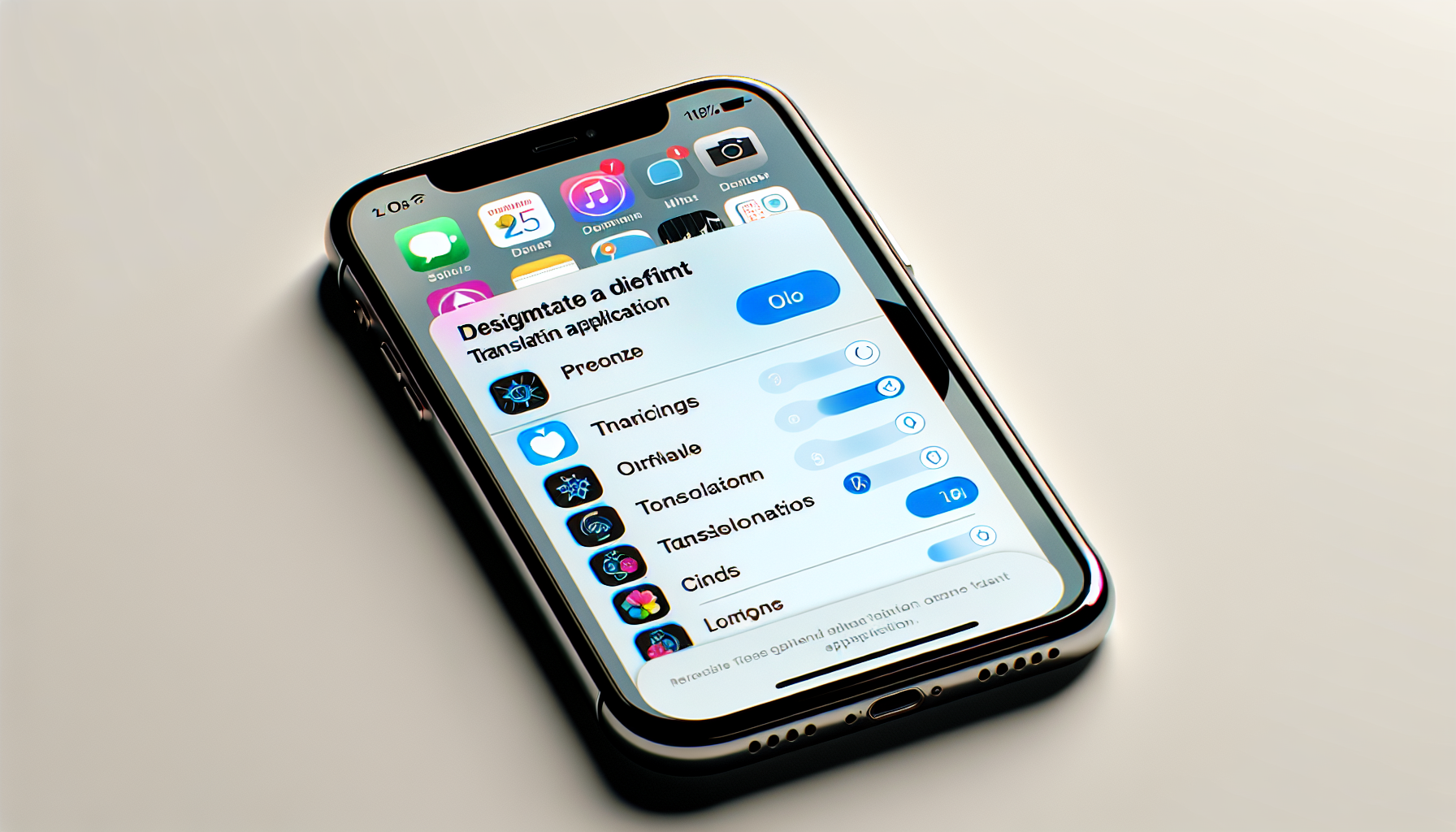iOS 18.4 Introduces Custom Default Applications for iPhone Users
Apple is enhancing the iPhone experience with the soon-to-be-released iOS 18.4 update, featuring a highly sought-after capability: the option to designate a default translation application. Although many users have relied on Apple’s own Translate app, iOS 18.4 will empower iPhone users to select third-party options such as Google Translate, Microsoft Translator, iTranslate Translator, and DeepL.
This marks only the start—Apple is broadening customization possibilities, providing users with additional control over the default applications on their devices. Here’s all you need to know about this update and its significance for iPhone users.
Greater Control Over Default Applications
For years, Apple has maintained strict control over default applications, restricting users to its native apps for tasks such as email, web browsing, and navigation. However, with recent updates nudging the boundaries, iOS 18.4 takes a notable leap forward.
How to Update Your Default Apps on iPhone
To transition from Apple’s Translate app to a third-party solution, simply follow these straightforward steps:
- Launch the Settings app on your iPhone.
- Scroll down and tap on Apps, then select Default Apps.
- Choose the category of the app you wish to modify.
In the past, iPhone users in the U.S. could change default apps for email, messaging, calling, call filtering, web browsing, password management, and contactless payments. Now, with iOS 18.4, translation apps join this expanding selection.
EU Users Receive Enhanced Default App Options
While users in the U.S. gain the ability to alter their translation app, iPhone users in the European Union are experiencing an even more substantial update: they can now select their preferred navigation app.
This means EU users are no longer compelled to utilize Apple Maps when accessing map links. Instead, they have the option to select services such as Google Maps or Waze as their primary navigation tool. This modification is particularly important for individuals who favor alternative mapping services due to their accuracy, real-time traffic updates, or user-friendly interfaces.
Apple has likely implemented this change in response to mounting regulatory pressures in the EU, where lawmakers have advocated for increased competition and consumer choice in digital markets.
Why This Update Is Important
The ability to personalize default applications might seem like a minor adjustment, yet it signifies a considerable change in Apple’s traditionally closed system. It offers users more freedom to customize their iPhone experience according to their preferences, rather than being confined to Apple’s native offerings.
For those who depend on Google Translate for its extensive language capabilities, or Google Maps for its superior navigation features, these updates will enhance daily tasks significantly.
Moreover, this update brings Apple closer in line with competitors like Android, which has long enabled users to determine their default applications.
When Will iOS 18.4 Launch?
Currently, iOS 18.4 is in its beta stage, meaning that only developers and beta testers can access it. However, Apple typically rolls out new iOS updates within a few weeks following the initial beta release. If past trends hold, iPhone users can anticipate the public launch of iOS 18.4 soon.
If you’re eager to experience the new features ahead of the official rollout, you can enroll in Apple’s beta program and download the beta version today. Keep in mind that beta software may occasionally be unstable and could contain bugs.
Final Thoughts
iOS 18.4 adds another dimension of customization to the iPhone, allowing users to choose their preferred translation and navigation apps. For Apple fans who have long desired greater flexibility in default app selection, this update is a welcomed enhancement.
While U.S. users will now have access to third-party translation applications, EU users benefit further by being able to set a default navigation app—representing a meaningful evolution in Apple’s stance on user choice.
As Apple continues to navigate regulatory changes and user expectations, it will be intriguing to see what additional customization features may emerge in forthcoming iOS updates.
Common Questions
1. How can I switch my default translation app on iPhone?
To change your default translation app in iOS 18.4, navigate to Settings > Apps > Default Apps, then select the Translation category and pick your preferred app.
2. Which translation applications can I use as my default in iOS 18.4?
Some well-known third-party translation applications you can choose as default include Google Translate, Microsoft Translator, iTranslate Translator, and DeepL.
3. Is it possible to change my default navigation app on iPhone?
With iOS 18.4, only EU users will have the option to set a default navigation app, enabling them to select alternatives like Google Maps or Waze instead of Apple Maps.
4. When is the release for iOS 18.4?
There is no confirmed release date at this time, but Apple usually launches new iOS updates within a few weeks of the first beta. Expect iOS 18.4 to be available soon.
5. Can I experiment with iOS 18.4 prior to its official launch?
Yes, you can join Apple’s beta program and download the beta version of iOS 18.4. However, please note that beta versions may contain bugs and may not be as stable as final releases.
6. Will U.S. users eventually be able to adjust their default navigation app?
Currently, Apple has not disclosed intentions to offer this feature to U.S. users, but given regulatory developments, it may become available in the future.
7. Why is Apple now allowing changes to default apps?
Apple is under increasing regulatory scrutiny, particularly in the EU, which is pushing for more competition and user autonomy within its ecosystem. The modifications in iOS 18.4 reflect Apple’s response to these calls for change.
With iOS 18.4 on the horizon, iPhone users can anticipate a more tailored and adaptive experience. Stay updated for more news as Apple progresses with its iOS platform!